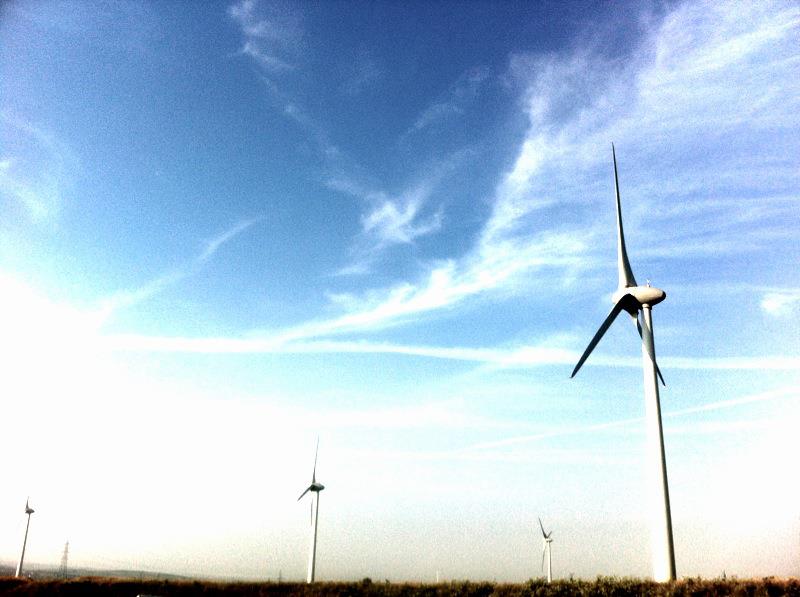Good Energy has called on Ofgem to update the licensing condition to reinstate the link between Power Purchase Agreements (PPAs) and customers to tackle greenwashing.
It is one of two key requests made by the supplier at the end of its new Renewable Energy Tariffs: The Problem of Greenwashing report, along with a call for Ofgem to enforce environmental claims by suppliers to be audited by either the regulator or an independent body.
The first would require the regulator to update the 21D, “Tariffs with Environmental Claims” licensing condition, as it still includes a requirement to “retire any associated Levy Exemption Certificates (LECs)” which is now out-of-date as it refers to a period when renewable generators were exempt from paying the now defunct Climate Change Levy.
These certificates were procured through a direct PPA with a generator, but the removal of LECs created a loophole which has allowed suppliers to claim their tariffs are 100% renewable using Renewable Energy Guarantee of Origin (REGO) certificates. By changing this regulation, no tariff would be able to be marketed as 100% renewable without the supplier buying power directly from a renewable generator.
The second alteration Good Energy suggests for 21D is the need for auditing of environment measures taken by suppliers. Within the licensing condition it specifies that choosing a green tariff should “result in an additional benefit to the environment” beyond existing obligations. However, without any form of enforcement or audit, suppliers are able to interpret this clause themselves, said Good Energy.
Speaking to Current± today, a spokesperson for Ofgem stated that it was taking “greenwashing very seriously”.
“We expect all suppliers to clearly communicate the nature of the ‘green’ energy they provide, and the source of energy that the customer can expect to receive. Suppliers must not make unfounded or confusing claims about the energy provided to their customers.
“We are aware of a range of different approaches to offering green tariffs, and different ways in which suppliers explain what they do. We are keen that information provided to consumers on the ‘greenness’ of tariffs is clear on the sustainability benefits, easy to understand and based on honest claims.”
What is ‘greenwashing’?
Good Energy’s report examines the growth in the commitment by customers to make changes to their lifestyle to live more sustainably, finding that 65% of people agree that they’d switch to a green tariff to support clean energy.
Certainly, the number of green tariffs have soared in recent years, with companies keen to capitalise on the growing environmental concern of their customers. But exactly how environmentally friendly these tariffs have been called into question by Good Energy on a number of occasions, labeling those that rely on REGOs as ‘greenwashing’.
REGOs were launched in 2009, and allow suppliers to purchase certificates from renewable generators rather than directly investing in renewable generation or working in partnership with renewable energy developers.
But these certificates are often combined with power bought from the wholesale market, which will be a mix of fossil fuel, renewable and nuclear power, meaning customers are ‘greenwashed’ into believing their tariff is more environmentally friendly than it is.
Dr. Tom Steward, Good Energy’s senior policy manager, and the report’s lead author said that “consumers are being sold down the river”.
“Most people would expect a supplier claiming to offer green power to actually be buying green power however, often that is not the case at all. Many companies are using a loophole in the rules to claim they are supporting renewables when, in fact, all they are doing is luring in customers with misleading claims whilst doing little to fight against climate change.”
The use of REGOs leads to a number of problems such as double-counting according to the report, as while each REGO can only be used by one supplier for each unit of power, if a renewable generator had a sleeved PPA with a tech company, the company could both market itself as using green power and the generator could sell the REGO on to a supplier. As such, this creates something of a grey area, further exacerbated by the fact that REGOs can be bought from anywhere in Europe and as such the renewable energy may not actually even be used in the UK.
Defenders of REGOs highlight that the certificates have a market value, and as such by using a tariff backed by them, renewable generators do get money back.
However, this is a question of scale, Good Energy argued, writing that “currently to buy enough REGOs to match the typical domestic customers’ demand, would cost about £1.50 per household per year. This inevitably provides a very small revenue stream to generators: for an average 5-megawatt solar site, this is just about enough to pay to cut the hedges around the site each year.”
The report follows Ofgem suggesting that 100% REGO-backed tariffs in themselves do not offer substantial environmental benefits as part of work into default tariff caps in 2019. This was further developed in 2020 within the regulator’s Decarbonisation Action Plan, when it urged suppliers to be transparent about what constitutes a ‘green tariff’, acknowledging concerns around ‘greenwashing’.
As such, Good Energy is urging Ofgem to bring in two reforms to ensure customers can tell the difference between green tariffs.
The regulator’s spokesperson added: “Ofgem supports a fair green energy transition, where consumers are not misled. As part of our wider strategic focus, we will step up our monitoring in this area, shine a light on good and bad practice and hold suppliers to account.”
Good Energy’s report follows vocal criticism from the company of a number of 100% renewable tariffs launched, including Centrica’s British Gas 100% renewable tariff earlier this year and Shell Energy’s last year. Other supplier have also voiced their concern over the use of REGOs, including ScottishPower, which announced in February that all new domestic fixed price tariffs will use 100% renewable energy that will be sourced entirely from its own wind farms.






